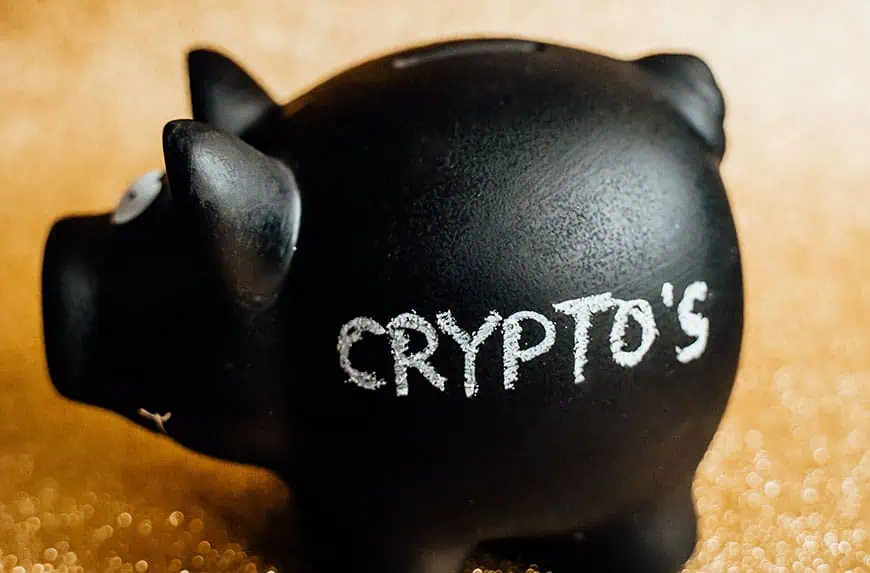If you are relatively new to the crypto world you may be wondering what the heck a crypto wallet is. We will give you all the ins and outs of these wallets and also explore top competitors. This will help you select a crypto wallet that is right for your digital currency needs.
Before investing in crypto, it is important to have a secure and user-friendly wallet.
Our guide reviews the top crypto wallets of 2026:
- eToro (Overall Best Crypto Wallet)
- Binance (Best Crypto App for Trading)
- ZenGo (Leading Web3 Wallet)
- Coinbase (Best for Beginners)
- Huobi (Top Bitcoin App For Earning Interest on Crypto)
- Trezor (Secure Hardware Wallet)
- Ledger Nano X (One of The Safest Wallets Available)
The Best Crypto Wallets Reviewed
Let’s take an inside look at some of the best crypto wallets that the industry has to offer. During our evaluation, we will look at several factors including safety & security, fees, user-friendliness, device type, and additional features.
Here’s a quick overview of the major factors that you should consider when choosing a crypto wallet:
- Safe & Secure to Use
- Fees
- User-friendliness
- Device type – e.g. mobile, desktop, hardware, or online
- Additional features such as exchange and swap services
1. eToro – Overall Best Crypto Wallet According to Users
eToro is a crypto broker regulated by SEC, ASIC, FCA, and CySEC. They have a user-friendly platform that allows you to buy and sell cryptocurrency with low margins. Their crypto wallet gives users a secure platform to care for their digital assets in the most user-friendly environment. With eToro, users can cash out cryptocurrency without the worry of transferring tokens between a wallet and exchanges.
- eToro is a leading crypto broker that is regulated by the SEC, ASIC, FCA and CySEC.
- It offers an easy-to-use platform to buy and sell cryptocurrencies with low spreads.
- The eToro Money Crypto Wallet app provides users with more control over their digital assets without compromising on user friendliness or security.
- Users can instantly cash out their crypto investments without needing to transfer tokens between wallets and exchanges.
- eToro also supports fiat deposits/withdrawals for US customers as well as social trading features such as commenting & liking posts from other investors & copy trading tools that allow you to mirror positions of expert traders like-for-like.
- eToro Money provides assistance in case of forgotten login credentials or lost private keys.
- The wallet facilitates swapping digital currencies without leaving the app, with more than 500+ crypto pairs available.
- Users can buy over 40+ crypto assets from as little as $10 with a spread-only basis fee of 2.9%.
- As eToro is regulated, it supports fiat deposits and withdrawals for US clients across multiple payment methods at no extra cost.
- Social trading features allow investors to network on the platform while copy trading enables them to mirror positions of expert traders like-for-like.
- With an eToro account users can build a diversified portfolio including cryptos, stocks ETFs etc., such as Graph and Celo at tight spreads from home.

2. Binance
Binance is no stranger to the cryptocurrency world. They are one of the leading names in this industry. Binance offers the best altcoin exchange when it comes to trading volume, but also has a multi-billion crypto asset (BNB) backing it. With its own network chain, Binance can host thousands of decentralized tokens. Some would say Binance is the best Bitcoin wallet available on the market for storage and trading purposes.

3. ZenGo
ZenGo has grown a lot in the last year. It now has more than 650,000 users in 180 countries worldwide. It supports the storage of crypto and NFTs. It also allows users to trade on Uniswap, Lindo, and Sandbox games, and explore Dapps. This wallet is compatible with both Android and IOS devices.

4. Coinbase
Coinbase is backed by one of the biggest crypto exchanges in the industry. It plays host to more than 70 million client accounts. Coinbase is largely targeted toward those who have no experience with buying, selling, or storing cryptocurrency. This wallet has many admirable security features, which include two-factor authentication.

5. Huobi
Huobi is primarily known for crypto exchange but also doubles as a web and mobile app. It is perfect for short-term traders who are looking to access their digital assets instantly. Huobi wallet app is compatible with IOS and android. Huobi is known for its wide range of tokens including Bitcoin, Dogecoin, Polkadot, Bitcoin Cash, XRP, EOs, and much more.

6. Trezor
While most crypto wallets are held on a mobile app or web storage, Trezor is a hardware wallet, so your digital assets are stored on a physical device. It is the most secure way to store digital tokens. It is kept offline, so no one can access it without you knowing.

7. MetaMask
MetaMask is widely supported by Web3 apps, especially those that are built for decentralized finance (DeFi). It is compatible with a large range of crypto exchanges, NFTs, play-to-earn crypto games, and much more. This wallet currently has 21 million users, which proves it is a popular wallet in the crypto space.

8. Trust Wallet
Trust Wallet is noted for its user-friendliness. It is packed with features that newbies and pros are both looking for in a crypto wallet. It can connect to 53 blockchains and is compatible with over 1 million different assets. You can use this wallet on several Web3 applications with its built-in dApps browser.

Other Notable Crypto Wallets:
Here are a few other crypto wallets that you may want to check out in addition to those already listed.
- Kraken
- Electrum
- Luno
- Exodus
The Top Crypto Wallets Compared
Below we will compare the 8 different crypto wallets and what they have to offer you. This will help you easily see if the wallet is something you want to invest your time and digital assets into.
| Wallet | Mobile App | Wallet | Custodial | Coins &Tokens |
|---|---|---|---|---|
| eToro | Yes | Software | Custodial | 75+, & 500+ Pairs |
| Binance | Yes | Software | Custodial | 1,000+ Markets |
| ZenGo | Yes | Software | Non-custodial | 70+ |
| Coinbase | Yes | Software | Custodial | 100+ |
| Huobi | Yes | Software | Custodial | 200+ |
| Trezor | No | Hardware | Non-custodial | 1,800+ |
| MetaMask | Yes | Software | Non-custodial | 500,000 ERC-20 assets |
| Trust Wallet | Yes | Software | Non-custodial | 60+ |
What is a Bitcoin Wallet?
A Bitcoin wallet gives you the ability to send or receive bitcoins, as well as a number of other cryptocurrencies. It allows you to connect to blockchain networks, send and receive tokens. There are hundreds of different crypto wallets on the market.
Be sure to take time to compare each and place a large concentration on the features that they offer. You want a wallet that will work with a number of exchanges and currencies. This way you do not have to switch storage methods if you decide to trade a different type of currency.
Why You Need a Crypto Wallet
When shopping around for a crypto wallet there are three main functions that you should consider: storage, sending, and receiving funds. Wallets give you the ability to engage in the crypto world. Without them trading, buying, and selling are difficult.
Example:
Buy Bitcoin from a crypto exchange. Once the purchase is complete tokens will be added to your web wallet. You then have the choice to leave your tokens on the exchange or you can send your digital assets to a wallet that you control. Crypto is more secure when you store it in a wallet that you control versus a platform that is controlled by someone else.
So, if you want, you can compare a crypto wallet to a checking account. You would open an account at a financial institution and be able to deposit money in your country’s currency. You can keep that money in your account as long as you like, or you can choose to withdraw it at any time.
The biggest difference is you working with digital assets versus fiat money. You are also sending and receiving money into your crypto wallet rather than a checking account. However, the concept is very similar.
How do Crypto Wallets Work?
Now that you know the basics of a crypto wallet, let’s get a better understanding of crypto storage and why you need it. Below we will go over in detail all the things you need to understand before choosing a crypto wallet.
Private Keys and Backup Phrase
Security is probably the number one thing you want to look at when shopping around for a crypto wallet. All wallets will require you to enter a password or security code to enter then. Some will have a two-step authentication, which means you will need to log in two different ways to access your wallet.
It will depend on the wallet as to what type of logins they offer. Some will offer passwords, while others require a security pin. You may also be required to enter a code that is sent to you by email or via text. Again, it will all depend on the wallet as to what is required.
Most will have a private key that you will need to enter if you forget your login details. This is a unique key to your specific wallet. It typically comes in the form of 64 characters, which will have a combination of lower and upper case letters, as well as numbers.
That’s a lot to remember, but do not worry, to make life a bit easier, most wallets will convert the private keys into a backup phase, which will equate to 12 random words. If someone can access your passphrase, they would gain access to your wallet. This is why it is so important that you write your backup passphrase down and keep it somewhere safe.
Crypto Wallet Address
A crypto wallet address gives you the ability to recieve funds. If you wish to have your funds directly deposited into your checking account, you would need to give your sender your unique bank account number.
However, in the crypto world this comes in the form of a long string of characters, which is compariable to the private key that we mentioned above. Unlike the private key, you are able to give your crypto wallet address to others so that they can send you funds.
A crypto wallet address will look very complex, but most wallet providers will offer you a QR code feature. This means you can send the QR code to your sender and they can simply scan it to send you money.
Fees
Fees will be attached when you use your wallet to send funds to another user. This is because transactions will need to be verified by “miners”. They receive compensation in the form of crypto for their time and resources.
The fee will be determined by the crypto being sent and how busy the network is. When sending funds from your wallet the fees will automatically be deducted from the transaction value.
Types of Bitcoin Wallet Accounts
This section will give you a better idea of the different types of crypto wallets available.
Software Wallets
For those who are not storing their digital assets on a hardware device (Trezor), you will be accessing a software wallet. This means that you can connect to the blockchain remotely. This is done through a crypto app or desktop software.
Mobile wallets tend to be more user-friendly and convenient. They allow you to access them from any location. Mobile wallets have a great layer of security. To first access the mobile wallet you would need to get past your phone’s lock screen.
Then you will have to enter your PIN or password to access your wallet. Some mobile wallets will also provide real-time notifications, which let you know when you receive funds.
Hardware Wallets
You know a little about hardware wallets from our overview of Trezor. This type of wallet offers the most secure storage option. It is kept offline all the time. They are never connected to live servers, so no one will be able to access them remotely. They would need to physically have the storage device to access them.
If your hardware wallet is stolen, they would have a hard time accessing your crypto assets. They would need to know your pin, which should be hard to guess. You do have the ability to regain control of your hardware wallet remotely by entering your backup passphrase.
Once you access it, you can transfer your crypto to another address where it is secure once again. The downfall of a hardware wallet is the fact that it is not easy to send and receive funds. You would need the physical device to complete transactions.
Paper Wallets
Paper wallets are not as common, but they do offer great security. You would print your crypto wallet address and private key on a sheet of paper. They will not be connected to any one specific wallet.
This means that your assets will be stored offline all the time. To send tokens to another address you would have to first access a wallet. From there, you will need to import the private keys that you printed out.
Your funds will then be transferred into tokens. This type of wallet is cumbersome and adds work to the user wanting to send or receive funds. They may be the answer for those who are in the crypto game for the long haul. However, you will have to keep the paper containing your private keys very secure.
How to Choose the Best Cryptocurrency Wallet for You
Now that you know how wallets work, lets look at some factors you should consider when shopping around for a crypto wallet.
Security
Security should be the #1 thing you look at when searching for the best crypto wallet. The security features will vary depending on what type of wallet you are looking for. Hardware wallets such as Trezor are among the most secure options but they are not as convenient as other options.
eToro web wallet is an authorized provider as they are regulated by the SEC, ASIC, FCA, and CySEC. However, Kucoin web wallet has no regulatory protection in place. These are things you need to be aware of.
If you are using a Bitcoin wallet app, you want to make sure they offer a secure way to access your assets. This can be done through a PIN or biometric login. Two-factor authentication is a security feature you should be on the lookout for, as well. This will require you to enter a code to access your wallet. The code will be sent by email or text and will only be activated for a limited amount of time.
Custodianship
Some wallets will offer custodial services, which means that they will take on the responsibility of safeguarding your private keys. You will have to contact a representative if you forget your login details, which may be inconvenient for some users.
Non-custodial service will mean that you are the only one who has access to your private keys and backup passphrase. If this information is misplaced, hackers may be able to access your digital assets. Be sure to consider custodianship when seeking the best crypto wallet.
Wallet Type
We have already reviewed the type of wallets that are available. You need to select the best wallet according to your experience level and your goals. So, if you want a good balance of convenience and security, as well as the ability to send and receive funds, then you may want to consider a mobile app wallet. However, if you place more concentration on security, then you may opt for a hardware wallet.
Trading and Swaps
The best Bitcoin wallets will allow you to store, as well as trade digital currencies. eToro allows you to buy and sell cryptocurrency without leaving their platform. This is highly convenient for most users. eToro is a regulated platform, which means you will even be able to use a debit/credit card to make purchases.
eToro gives you access to 500 digital currency options. It can all be accessed from your mobile device. You can swap one type of digital token for another without leaving your wallet. This is a convenience that many crypto users are looking for.
While you may not be into trading and swapping cryptocurrency at the moment, this is a feature you may want to access in the future. If your wallet already has the capability, you will not be tasked with searching for a new wallet option.
User Experience
If you are somewhat new to the crypto world, you want to go with a very user-friendly wallet. This will help you learn the basics and feel confident about your digital assets. Some of the best beginner crypto wallets are eToro and Coinbase. They will guide you through the entire process, including how to send and receive funds.
Fees
We touched on fees earlier, but we will go into more detail here. Any time you send crypto tokens to another wallet you will be charged a fee. This fee will be based on the blockchain and how busy the network is. The best crypto wallets will allow you to send funds at the current network rate. Some providers will charge a flat fee for transfers no matter how busy the network is.
Binance will charge a flat rate of 0.005 BTC to transfer Bitcoin to another wallet. Small amounts may not be a viable option, but a flat fee will be great for those who are transferring large amounts.
Alerts and Portfolio Valuation
Real-time transaction alerts can be a huge deal. You want to know when you receive a payment, and these alerts will allow that. Many platforms will also offer real-time data on the valuation of your portfolio.
Supported Coins
Determining the right crypto wallet also depends on the type of crypto you want to invest in. Be sure to review a full list of currencies that the wallet works with.

How to Get a Bitcoin Wallet
We are going to use eToro for our example in this section, which happens to be our top pick for crypto wallets. We based the decision on security, convenience, features, user-friendliness, and regulations.
Step 1: Open an Account
You will need to register for a free account on eToro.com. You will have to enter some personal information and contact details. This platform is regulated by the SEC, as well as other licensing bodies. You will need to upload a copy of your passport or driver’s license, as they comply with regulations set for anti-money laundering.
Step 2: Download eToro Money Crypto Wallet App
Once your account is verified, you will be able to download the eToro crypto wallet app. You can download it for free from the Google Play Store or App Store. You will need to use the username and password you created when you registered your eToro account.
Step 3: Add Assets to Crypto Wallet
Once you are logged into your eToro crypto Wallet app, you will need to add some digital currency. If you happen to have digital tokens stored somewhere else, you will be able to copy them over to your wallet’s address through the app.
If you do not have any cryptocurrency, you will be able to buy it through your eToro account using a debit/credit card or e-wallet. You will only be charged on the spread (1%) and there is a minimum stake of just $10. So, you can easily buy Bitcoin through eToro for as little as $10 and there are no fees for depositing US clients.
FAQs on Crypto Wallets
Crypto wallets will store public and private keys, as well as provide an easy way to manage your crypto balances. These wallets can support cryptocurrency transfers via blockchain. Depending on the type of crypto wallet you have, they may allow you to buy, sell, or interact with decentralized applications (dapps).
It will depend on the wallet, but most will make you set up a free account to get started. They will ask for normal stuff, such as your name, phone, and email address. From there, it is going to be based on which wallet you go with. Once your account is up and activated you will be able to add digital tokens to your wallet.
From our comparison, we like eToro. It ticks all the boxes and is great for pros and newbies. It will all depend on your goals as to which crypto wallet is best for you.
Coinbase is a great wallet for Bitcoin. It is simple to set up and begin trading cryptocurrency. They have a Visa-backed debit card that you can integrate with Apple Pay and Google.
A cold wallet is a crypto wallet that is not stored online. They allow you to hold cryptocurrency offline, which is the most secure way, but not convenient for most users.
Coinbase happens to be one of the safest cryptocurrency wallets across the globe. This is due to their incorporation with the Coinbase exchange platform.
We feel Trezor is the best hardware crypto wallet. However, there are several other hardware wallets available.
Lykke Wallet is known to have the lowest fees. You can trade cryptocurrency without having to pay any fees.
Disclaimer: Investing can be quite a wild ride – especially when you don’t know the terrain! To keep things from getting too rocky, take some time beforehand to get familiar with all of the risks involved. Our site is here to up your investor game by providing all available intel about platforms and trends, but we don’t take responsibility nor can we be held accountable as advisors. That being said, it’s still important for you to make educated decisions that match what works best for YOU – just remember: no amount of savvy will guarantee success or protect against loss so invest money you can spare.











